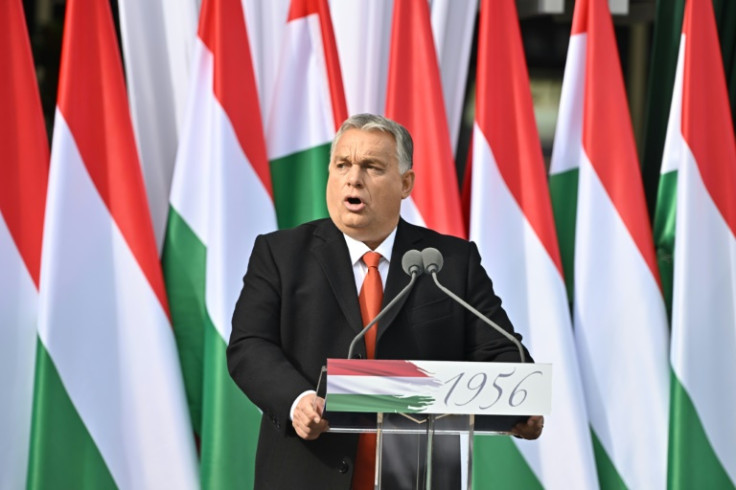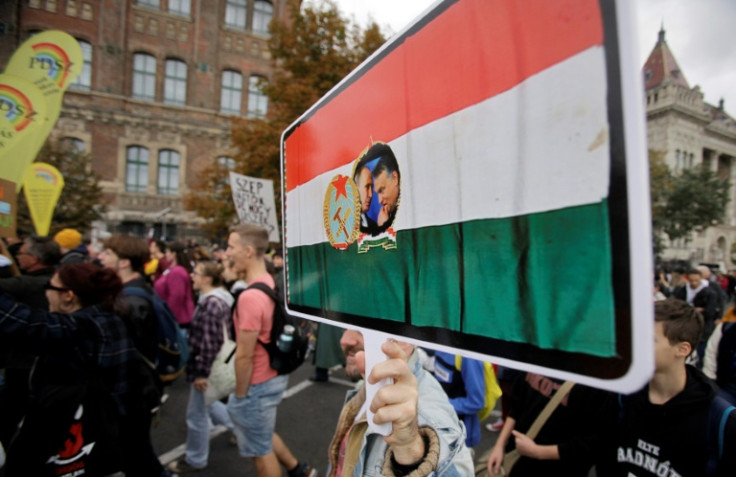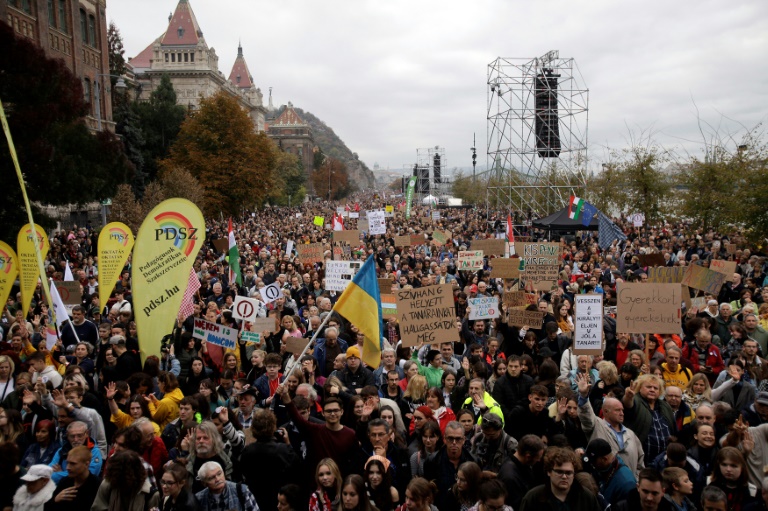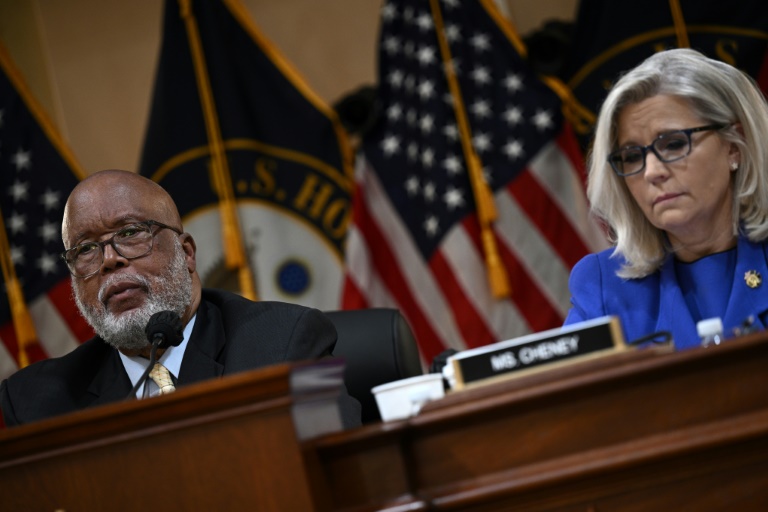Hungarian Prime Minister Viktor Orban on Sunday attacked the EU over its Russia sanctions policy, while in Budapest, tens of thousands protested what they say is his neglect of the education sector.
Speaking in the western city of Zalaegerszeg, Orban accused Brussels of “shooting” at Hungary with the sanctions.
“Let us not worry about those who are shooting at Hungary hidden in the shadows, somewhere from the watchtowers of Brussels,” he said.
“They will end up where their predecessors ended up,” he added, hinting that the EU could disintegrate as the Soviet bloc had.
Since the start of the conflict in Ukraine, Hungary – which is heavily dependent on imports of Russian energy – has nurtured its relations with the Kremlin so as to keep receiving gas and oil.
At the same time, Budapest has repeatedly denounced the EU sanctions as a disastrous to its economy.
Orban was speaking on the anniversary of the start of the 1956 Hungarian uprising against Soviet rule, which was eventually crushed when Moscow sent in tanks to crush the rebellion.
Last week, Budapest launched a “national consultation” survey of citizens about the EU’s sanctions. Posters put up across the country declare: “The sanctions from Brussels are ruining us.”
Although Hungary voted with his fellow EU member states for the sanctions, Orban has regularly protested the damage they have done to the country’s economy.
“War on our doorstep, financial crisis and economic slowdown in the European Union, migratory invasion in the south, (…) we have to face multiple problems,” said Orban on Sunday
But he insisted that his “strong and united” government would overcome such challenges.
In Budapest meanwhile, tens of thousands marched against Orban’s education policies, angry at what they say is the underfunding of schools and the intimidation of teachers pressing for better conditions.
After years pressing in vain for wage rises, the campaigners have hardened their tone, pushing back at a government decree in February that drastically restricted teachers’ right to strike.
Since the start of the school year, teachers and high school students have staged several demonstrations in Budapest and cities nationwide, backing teachers dismissed for taking part in earlier protests.
Sunday’s march in Budapest was the biggest so far, and organisers pledged to keep up the pressure in the coming weeks.
“Everyone in my school is exhausted at having to fight for basics like enough teachers and equipment,” said 17-year-old student Anett Bodi at the demonstration.
“We totally back our teachers in their struggle for their rights,” she told AFP.
Although the government acknowledges that pay is too low, it has tied a planned rise to long-awaited EU funding.
That has been held up over concerns in Brussels over Hungary’s corruption and slipping democratic standards.










